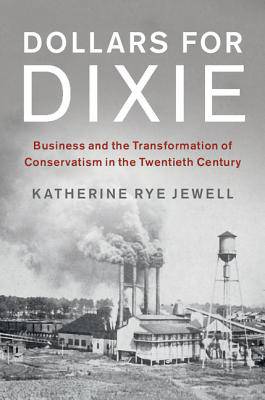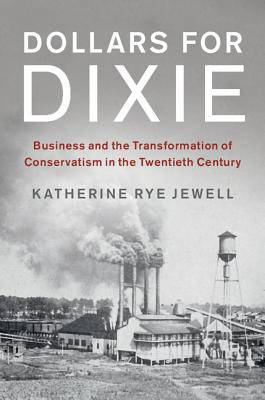
Bedankt voor het vertrouwen het afgelopen jaar! Om jou te bedanken bieden we GRATIS verzending (in België) aan op alles gedurende de hele maand januari.
- Afhalen na 1 uur in een winkel met voorraad
- In januari gratis thuislevering in België
- Ruim aanbod met 7 miljoen producten
Bedankt voor het vertrouwen het afgelopen jaar! Om jou te bedanken bieden we GRATIS verzending (in België) aan op alles gedurende de hele maand januari.
- Afhalen na 1 uur in een winkel met voorraad
- In januari gratis thuislevering in België
- Ruim aanbod met 7 miljoen producten
Zoeken
Dollars for Dixie
Business and the Transformation of Conservatism in the Twentieth Century
Katherine Rye Jewell
€ 99,45
+ 198 punten
Uitvoering
Omschrijving
Organized in 1933, the Southern States Industrial Council's (SSIC) adherence to the South as a unique political and economic entity limited its members' ability to forge political coalitions against the New Deal. The SSIC's commitment to regional preferences, however, transformed and incorporated conservative thought in the post-World War II era, ultimately complementing the emerging conservative movement in the 1940s and 1950s. In response to New Dealers' attempts to remake the southern economy, the New South industrialists - heirs of C. Vann Woodward's 'new men' of the New South - effectively fused cultural traditionalism and free market economics into a brand of southern free enterprise that shaped the region's reputation and political culture. Dollars for Dixie demonstrates how the South emerged from this refashioning and became a key player in the modern conservative movement, with new ideas regarding free market capitalism, conservative fiscal policy, and limited bureaucracy.
Specificaties
Betrokkenen
- Auteur(s):
- Uitgeverij:
Inhoud
- Aantal bladzijden:
- 332
- Taal:
- Engels
- Reeks:
Eigenschappen
- Productcode (EAN):
- 9781107174023
- Verschijningsdatum:
- 24/04/2017
- Uitvoering:
- Hardcover
- Formaat:
- Genaaid
- Afmetingen:
- 160 mm x 239 mm
- Gewicht:
- 603 g

Alleen bij Standaard Boekhandel
+ 198 punten op je klantenkaart van Standaard Boekhandel
Beoordelingen
We publiceren alleen reviews die voldoen aan de voorwaarden voor reviews. Bekijk onze voorwaarden voor reviews.









